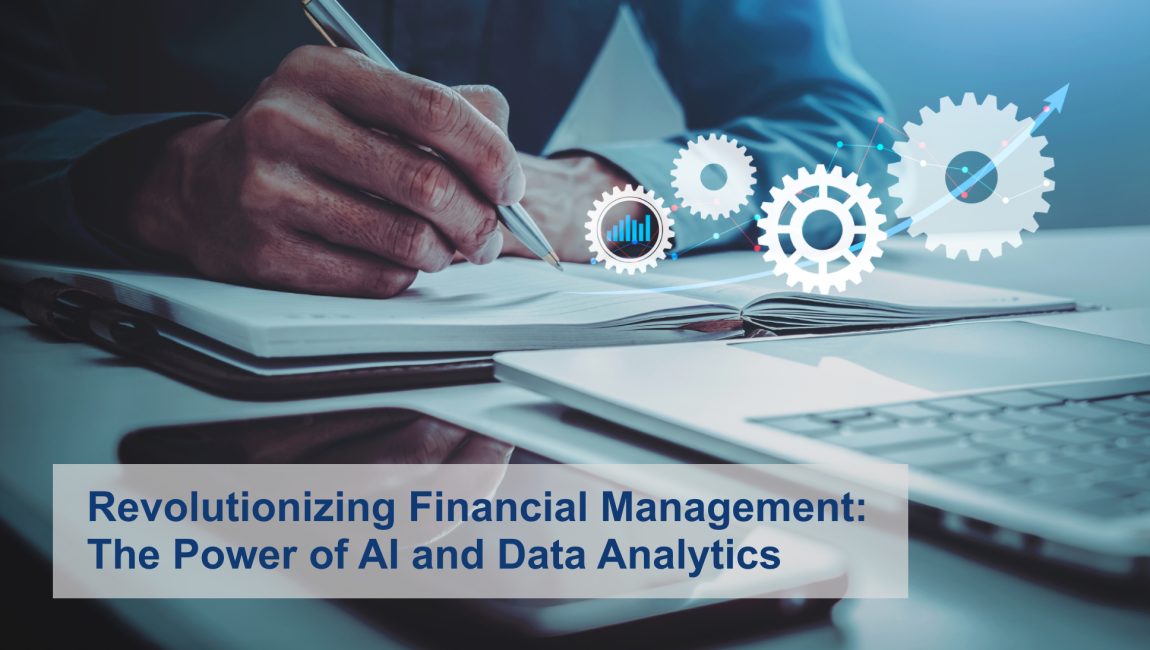The fusion of Artificial Intelligence (AI) and Data Analytics has changed the dynamics of the ever-evolving business landscape. The ability to collect and analyze huge amounts of data is fundamentally reshaping decision-making processes, rendering them more efficient and informed.
Data-Driven Financial Planning and Decision Making
The days when financial planning was based solely on assumptions and facts from the past are over. Today, businesses leverage AI and Data Analytics to make decisions based on real-time data which enhances the accuracy and effectiveness of financial planning.
At the present moment, AI algorithms continuously process ‘live’ financial data and provide businesses with real-time updates on market trends, consumer behaviour and economic indicators. This enables financial managers to make informed decisions when creating budgets, investing, and managing risk.
One of the primary benefits of using AI in financial planning, is the ability to evaluate numerous situations simultaneously.
Financial analysts can minimize risks and optimize financial strategies by considering multiple factors concurrently and adjusting plans accordingly to predict possible outcomes.
Moreover, financial planning tools powered by AI can offer personalized advice based on individual financial goals, risk tolerance and the state of the market. This personalized assistance ensures not only customer satisfaction, but also the alignment of financial plans with their goals.
AI-Driven Credit Rating
Credit rating plays a pivotal role in financial transactions, as it impacts interest rates and lending choices. The use of AI is revolutionizing credit checks, making them more accurate, faster and fairer.
Alternative Data Utilization: AI programs examine non-traditional data sources such as transaction history, social media activity and online behavior to determine creditworthiness. This approach provides a more comprehensive picture of an individual’s financial habits.
Predictive Modelling: Machine-learning models analyze large datasets to predict credit risk by identifying patterns and trends. This enhances the flexibility of the credit rating system, allowing it to adapt to changing financial situations in real time.
Reduced Bias: AI relies on objective data analysis, minimizing human bias in credit-rating decisions. This ensures a fair and unbiased assessment of trustworthiness, making the financial system more transparent to everyone.
Predictive Analytics for Cash Flow Management
Cash flow management is an important part of running a business’s finances. By incorporating cutting-edge AI-powered predictive analytics technologies, organizations are revolutionizing the forecasting and management of cash flow.
AI meticulously examines past financial data, market patterns and other critical elements through sophisticated algorithms. This gives businesses the ability to predict and address potential future challenges.
In the context of expense management, AI plays a crucial role in identifying spending trends, detecting outliers and providing recommendations for cost reduction. By leveraging AI capabilities, businesses can optimize their spending, ensuring that financial resources are utilized most effectively.
Proactive risk management is another dimension where predictive analytics proves invaluable. Businesses can anticipate potential obstacles to cash flow and take pre-emptive measures to mitigate their impact, ensuring the continuity of operations.
In summary, AI and Data Analytics have made financial management faster and more accurate than ever before. These technologies are changing the financial world in many ways, from using data to make decisions to employing AI to rate credit and utilizing predictive analytics for managing cash flow. As companies adopt these new technologies, they will be better equipped to navigate the complicated and ever-changing financial world we live in now, leading to stronger and more stable financial strategies.

